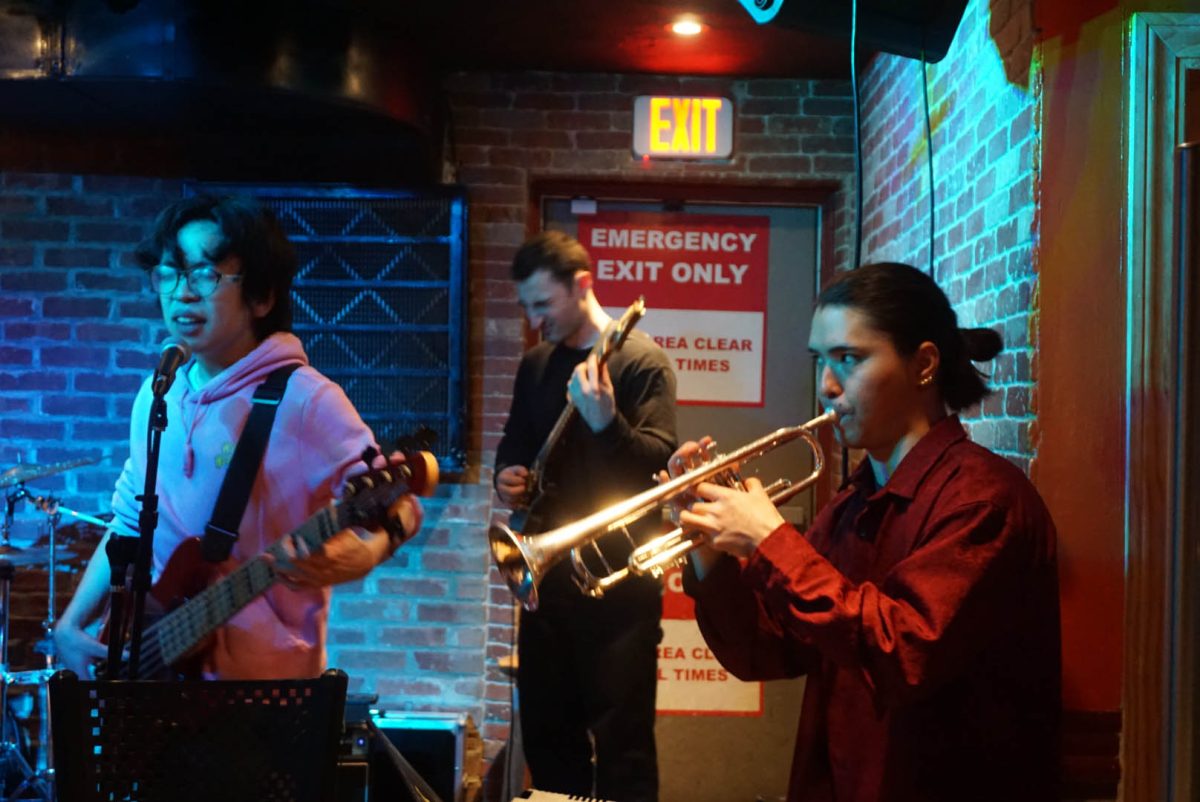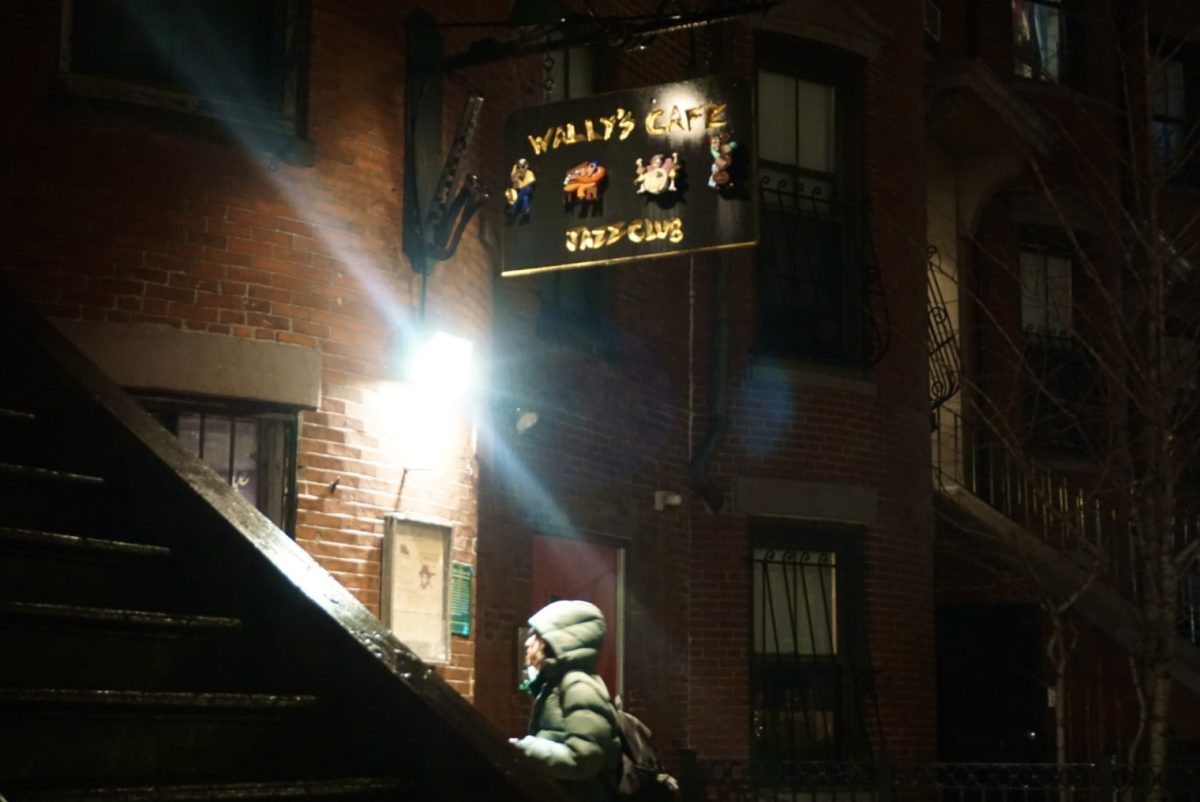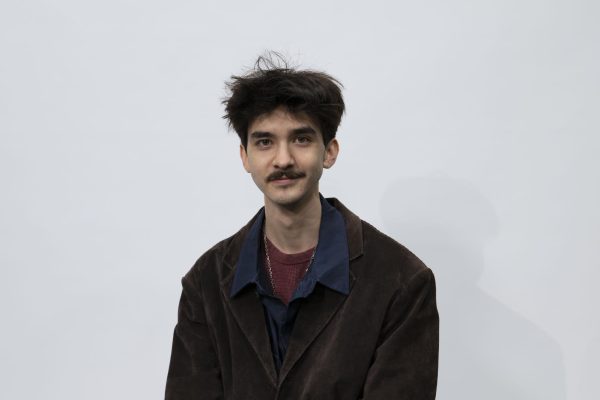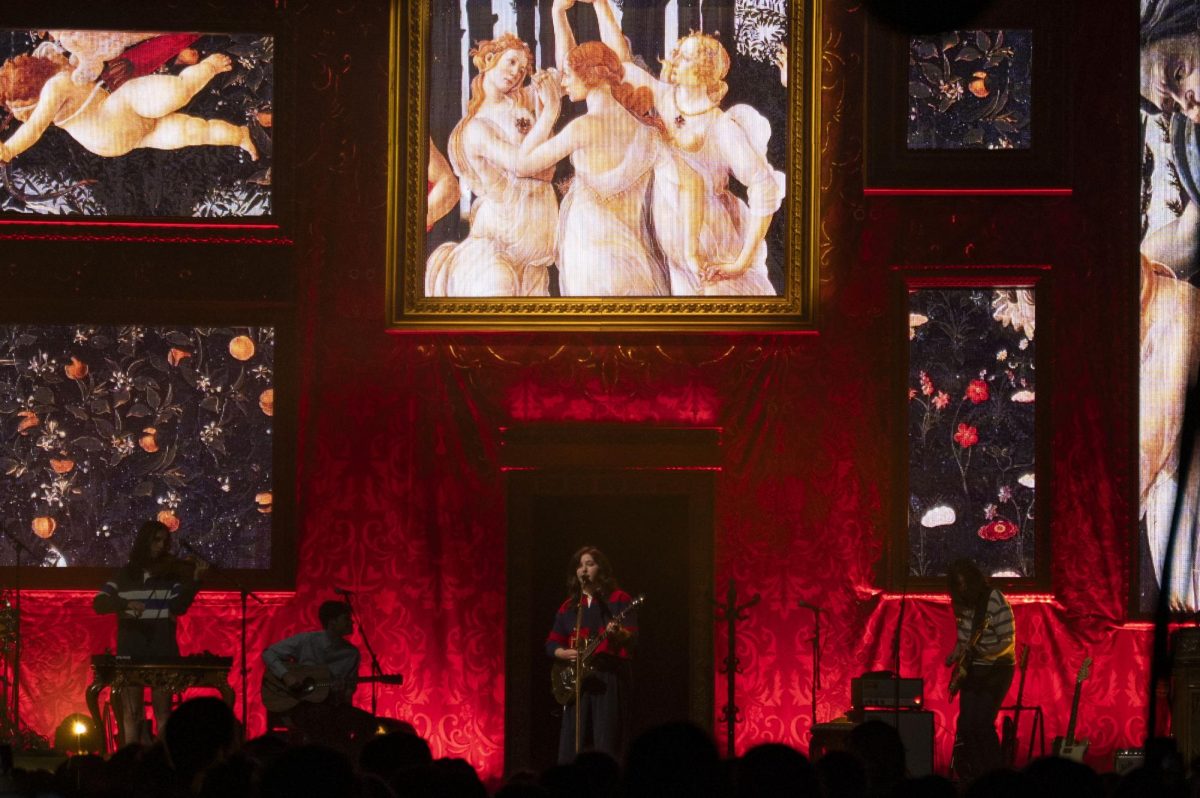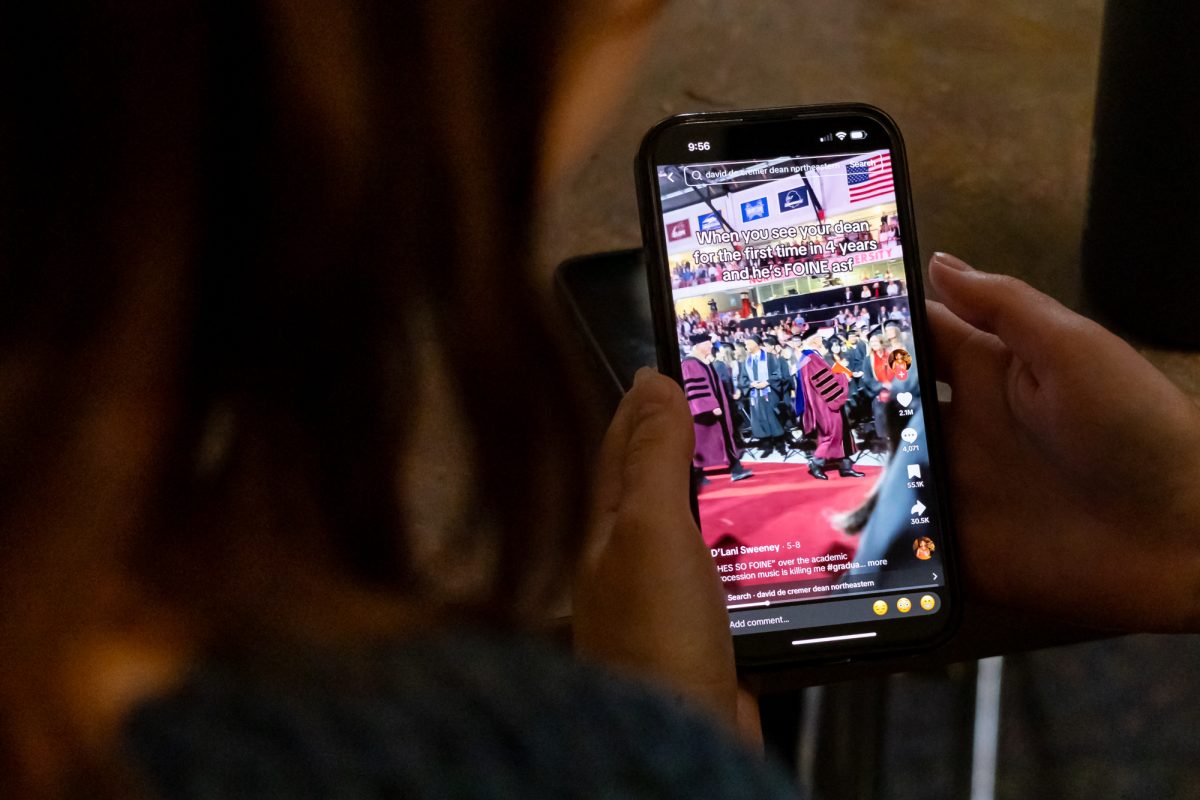Tucked between brownstones on Massachusetts Avenue sits the nearly 80-year-old Wally’s Cafe Jazz Club. Though the independent venue is one of the last of its kind, Wally’s seems to have no problem filling seats for live jazz every day of the week.
Each night, bands performing at Wally’s feature a different genre, spanning jazz, blues, funk, salsa and bebop.
Originally called Wally’s Paradise, the bar was founded by Joseph L. Walcott, the first Black man in New England to own a nightclub and receive a liquor license in Boston. His legacy is carried on through his great-grandson Frank Poindexter and his brothers, who still run the family business.
Despite its old age, the energy inside the jazz club feels especially youthful.
“It’s a space that just brings people together from all walks of life — music is universal, and good music you can’t go wrong with,” lead bartender Kendra Calloway said. Calloway’s father used to run nightclubs, so music has always been a part of her life.
The venue once hosted legends such as Charlie Parker, Billie Holiday and Dizzy Gillespie, cementing it as a haven for Black music and culture in the big band era. Since then, it’s become home to hopeful, young musicians and seasoned performers alike.
“We’re fortunate in Boston. We have some of the great schools, the major universities for training musicians, and they form their initial professional networks here,” Poindexter said. “A lot of these musicians that are here studying are some of the best musicians around the planet.”
Talli Kimani, a Berklee College of Music saxophonist and leader of the Talli Kimani Quintet, plays at Wally’s every Wednesday, belting out his favorites from the straight-ahead era of jazz music.
“It’s a haven for young jazz musicians to learn how to play,” Kimani said. “It just provides us a place to perform, to hone our chops to sing — yeah, we love Wally’s.”
Later at night, older musicians come in, and younger musicians eager to learn can play alongside them. The weekly jam sessions sharpen young talents as they get comfortable on stage.
“I think there’s a special charm to hearing jazz live,” Kimani said. “It’s something the recording almost can’t even capture [because] what you’re seeing is people innovating on the spot — it’s something you gotta hear bouncing off the walls; the sounds of glass clinking and the people talking.”
Jazz enthusiasts fill the club, nodding heads and tapping their feet with the band.
“What I found out is that with the Americans, [jazz] is not as prominent as it was, say, 20 to 30 years ago, and more so the appreciation is from students from abroad,” Poindexter said.
Kentaro Mashimo, a Japanese bassist who graduated from Berklee in 2020, stayed in Boston to play with other bands and musicians to help develop their sound and enhance their message.
“Boston is literally a college town, so it’s like the doors and windows are always open — the new breeze comes in and out,” Mashimo said. “Those kind of characteristics of cities keep us who stay here fresh — the new energy, new perspective, it never gets me bored.”
The brick wall that winds around the back of the bar not only channels a wall of sound directly through the audience but is as old as the club itself.
“You know people say, ‘If this wall could talk.’ This is that place,” Mashimo said. “This wall has probably witnessed or seen all the jazz legends growing up; this is a place of the community.”
Mashimo says he now feels like one of the walls of Wally’s, watching young musicians come, grow and move on.



